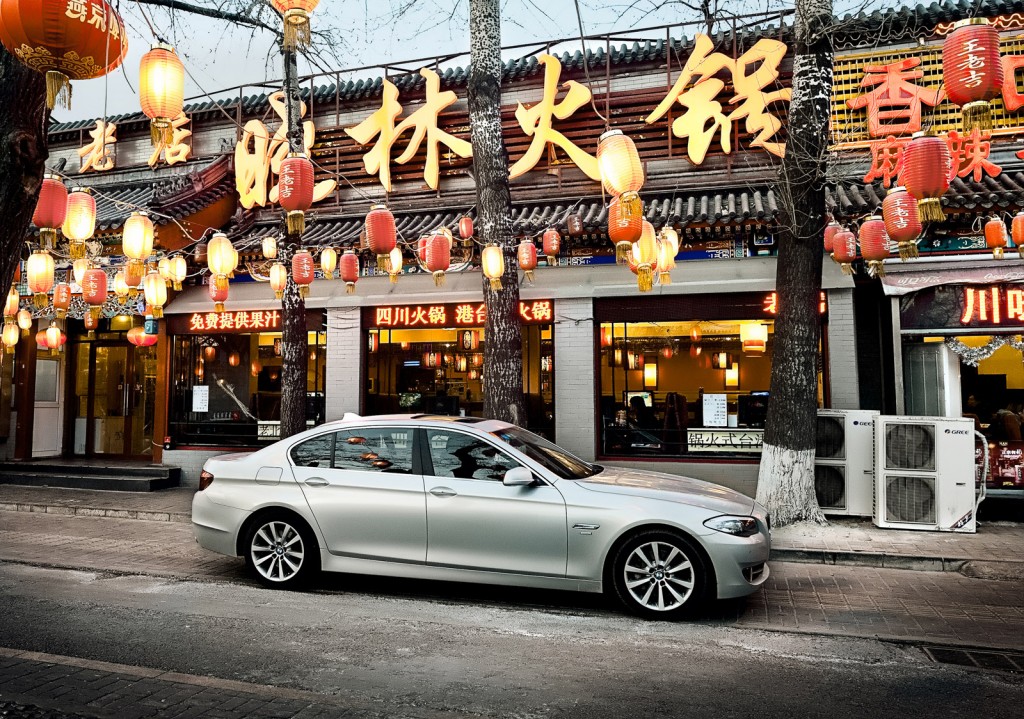It's a vision that seems like something from a future century: a carmaker preparing to phase out combustion engines altogether.
The notion that an entire brand could walk away from the hydrocarbon-fueled engines that power more than 1 billion vehicles on our roads--and have done since 1885--is inconceivable.
And yet that's what one industry analyst suggests famed German luxury maker BMW is preparing to do.
![2014 BMW i3 and 2014 Tesla Model S [photo: Tom Moloughney] 2014 BMW i3 and 2014 Tesla Model S [photo: Tom Moloughney]](https://images.hgmsites.net/lrg/2014-bmw-i3-and-2014-tesla-model-s-photo-tom-moloughney_100489233_l.jpg)
2014 BMW i3 and 2014 Tesla Model S [photo: Tom Moloughney]
Tesla investor
Ron Baron manages mutual funds at Baron Capital; his funds have roughly $250 million invested in Tesla Motors, he told CNBC's "Squawk Box" program three weeks ago.
Baron notes the automotive history that led to a century of gasoline dominance, with gasoline being much cheaper than electricity--a ratio that's now entirely reversed.
DON'T MISS: 2014 BMW i3: What A Tesla Driver Thinks Of New Electric BMW
He then suggests that established automakers don't want electric cars because their existing engine and transmission plants would become "stranded" compared to electric-car plants.
He also says unions don't want electric cars, because they require fewer people to build them, hence fewer jobs.

2013 Tesla Model S and 2014 BMW i3, Hudson Valley, NY, Nov 2014
And dealers don't want them, Baron suggests, largely because Tesla sells direct to consumers and because there's much less service revenue on the back end.
No more engines
All of those points are eminently debatable. But that's not the most radical thing Baron has said about electric cars.
He wrote in the September 30 edition of his quarterly newsletter to shareholders:
While many car companies doubt electric cars will ultimately represent a large portion of new car sales, BMW is not one of those companies.
Two of our research analysts recently visited BMW’s headquarters in Munich, as well as its electric vehicle and carbon fiber assembly plants in Leipzig, Germany, and its battery pack assembly plant and research facility in Dingolfing, Germany.
The BMW financial team believes a revolution in drive train is underway. We believe that BMW will likely phase out internal combustion engines over the next 10 years!
We're inclined to suspect this assessment may be based on either lack of context or the most optimistic of projections.
The notion that BMW will build its very last gasoline or diesel engine around 2024 seems to ignore certain realities.

BMW 5-Series in China
Reality may differ
Among them, many developing countries don't remotely have the electric infrastructure to support adoption of either plug-in electric or hydrogen fuel-cell vehicles.
While BMW's luxury products appeal to a country's most affluent buyers, the example of China shows that electric-car charging remains a massive challenge for wealthy buyers living in apartment buildings--the majority of the urban housing in that country.
ALSO SEE: How Much And How Fast Will Electric-Car Battery Costs Fall?
And hydrogen is far more challenging to distribute than gasoline or diesel, given the high compression required.
That said, it's entirely possible that BMW might be well along the way to selling substantial numbers of cars without engines in some of its North American and European markets by then.
![Tesla Model S lithium-ion battery pack in rolling chassis [photo: Martin Gillet via Flickr] Tesla Model S lithium-ion battery pack in rolling chassis [photo: Martin Gillet via Flickr]](https://images.hgmsites.net/lrg/tesla-model-s-lithium-ion-battery-pack-in-rolling-chassis-photo-martin-gillet-via-flickr_100481091_l.jpg)
Tesla Model S lithium-ion battery pack in rolling chassis [photo: Martin Gillet via Flickr]
Cheaper cells a tipping point?
By 2025, lithium-ion cells will cost roughly one-third what they did in 2011, when the first electric cars launched.
With higher and higher costs required to make combustion-engined cars meet increasingly lower carbon-emission standards worldwide, it's possible that the "tipping point" for electric cars could come around then.
But with only hundreds of thousands of zero-emission vehicles on the world's roads today--in a vehicle population of 1 billion-plus--it's hard to imagine the death of gasoline engines just a decade away.
![Smog in Hong Kong [Image by Flickr user inkelv1122] Smog in Hong Kong [Image by Flickr user inkelv1122]](https://images.hgmsites.net/lrg/smog-in-hong-kong_100413995_l.jpg)
Smog in Hong Kong [Image by Flickr user inkelv1122]
Still, for those who care about air pollution, climate change, and energy security, the demise of the combustion engine can only be an alluring vision.
Even if it may not come quite as quickly as one Wall Street analyst seems to think it may.
[hat tip: Tom Moloughney]
_______________________________________________













